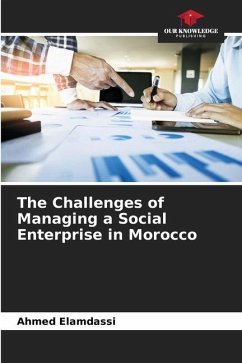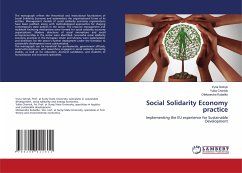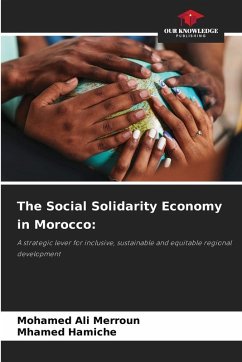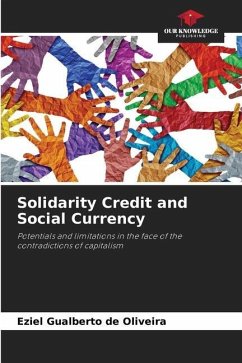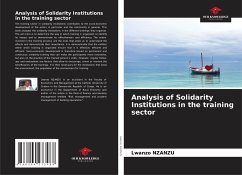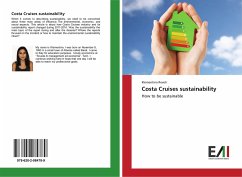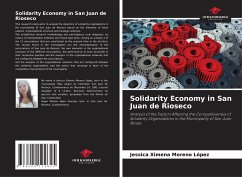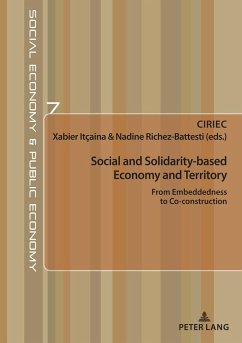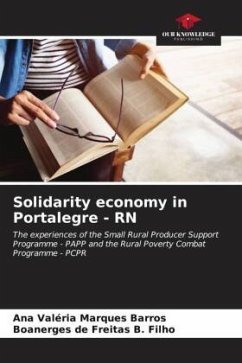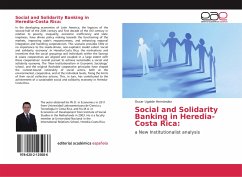
Social and Solidarity Banking in Heredia-Costa Rica:
a New Institutionalist analysis
Versandkostenfrei!
Versandfertig in 6-10 Tagen
17,99 €
inkl. MwSt.

PAYBACK Punkte
9 °P sammeln!
In the developing economies of Latin America, the legacies of the second half of the 20th century and first decade of the XXI century in relation to poverty, inequality, economic inefficiency and state ineptness, have driven policy making towards the functioning of the markets, improving state's responsiveness, and enhancing regional integration and handling corporativism. This scenario provides little or no importance to the needs-driven, non-capitalist model called 'social and solidarity economy'. In Heredia-Costa Rica, the motivations and incentives that the social groupings and individuals...
In the developing economies of Latin America, the legacies of the second half of the 20th century and first decade of the XXI century in relation to poverty, inequality, economic inefficiency and state ineptness, have driven policy making towards the functioning of the markets, improving state's responsiveness, and enhancing regional integration and handling corporativism. This scenario provides little or no importance to the needs-driven, non-capitalist model called 'social and solidarity economy'. In Heredia-Costa Rica, the motivations and incentives that the social groupings and individuals within the Savings & Loans cooperatives are aligned and coupled in a large extent with these cooperatives' overall pursuit to achieve sustainable a social and solidarity economy. The 'New Institutionalism in Economic Sociology' school, and the original Rochdale cooperative principles have shaped the context-bound rationality of social actors, both at the environmental, cooperative, and at the individual levels, fixing the limits of their social collective actions. This, in turn, has contributed to the achievement of a sustainable social and solidarity economy in Heredia-Costa Rica.



